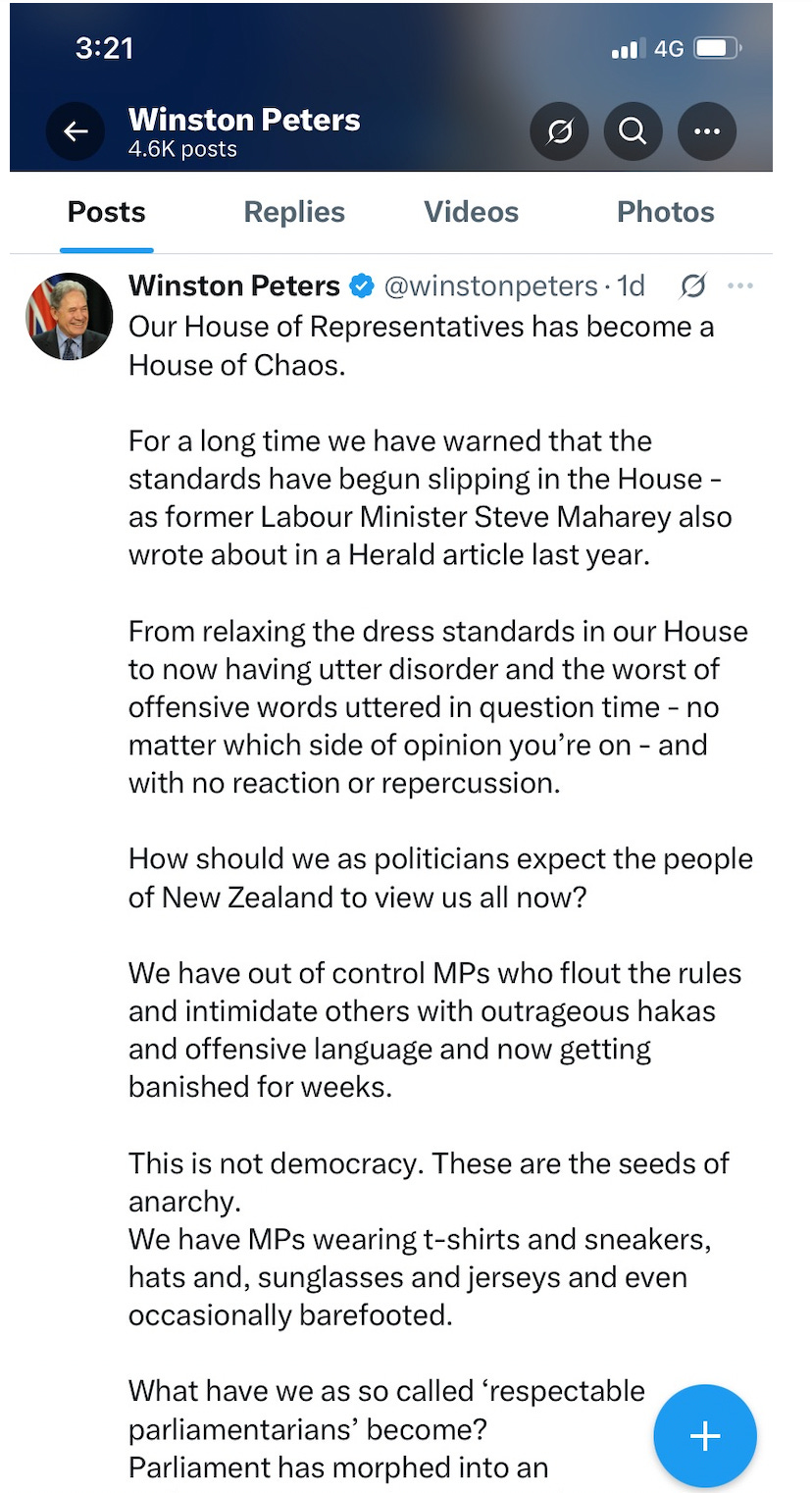Is it time for politicians to look self-critically in the mirror?
Are our representatives letting themselves – and us – down?
New Zealand First leader Winston Peters has complained that “standards have begun slipping in the House”.
He was referring in particular to the utterance of an obscene word, an intimidating haka and a lowering of standards of attire.
“I have never seen this level of degradation of our democracy in my many years of politics”, he lamented – and he’s seen many more years of politics than most of us!
You can read his full rant below, copied from X.
In 2020, when the 53rd parliament assembled, it was celebrated as the world’s most diverse. And, when it dissolved in late 2023, I felt moved to ask if it ranked as New Zealand’s worst-behaved ever.
Winston Peters occupied no seat in that parliament, so none of that was his fault. He seems to suggest, though, that the 54th parliament, of which he is a member, is even more poorly behaved than the preceding one.
Are things really going that low, or is this just one more example of an elderly man criticising the younger generations? Do you agree with Winston Peters’ account of “slipping standards” in the House of Representatives?
Responses may of course be influenced by our opinions about Mr Peters himself, as he’s rather fond of drama. Some readers may ask if he should be the first to look in the mirror, or query whether he’s even capable of self-doubt.
All the same, the personal conduct of those few people who rule, govern and pass laws on our behalf is a central factor for political trust. And this concern is an ancient one: there’s a very long tradition of literature – found in all civilizations – addressing it. Read, for instance, the Analects of Confucius or the Meditations of Marcus Aurelius.
The basic idea was (metaphorically) to hold up a mirror before a monarch (or heir to a throne) in the hope that he or she would “reflect” and think about benevolence and justice – to set the best example for others, or merely save people from an impulsive, privileged, violent brat. This genre of political writing is often called “mirror for princes”.
As AI plays a greater part in government and administration, a similar question arises: will programmers train AI – and will AI train itself – to act for the benefit of the people?
If you’d like to learn a bit more about mirrors for princes and princesses, you can hear an audio lecture I made on the topic. It focuses on two medieval women who stand out for their political and historical writing – Anna Komnene and Christine de Pizan – as well as the incredible Hurrem Sultan (alias Roxolana). Back then, it seems, people thought more deeply about this stuff, perhaps because political fortunes were so uncertain.
Forget the corruption of Trump for one moment. Maybe it’s time for New Zealand’s politicians to take a look in the mirror and ask how to be better versions of themselves. There’s never a wrong time to do so, after all, and they’d be following a noble tradition.
Winston’s complaint:










I agree with Winston re standards slipping but not with all the examples he cites. He is part of the problem not part of the solution and he could start be reining in his own MPs, one of whom at least is known for displays of contempt of the people he was elected to serve , both inside and outside parliament.
What Winston doesn't do is identify the slipping standards of honesty - the continual misrepresentation and straight out lying from ministers and MPs.